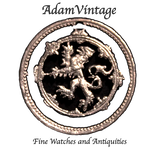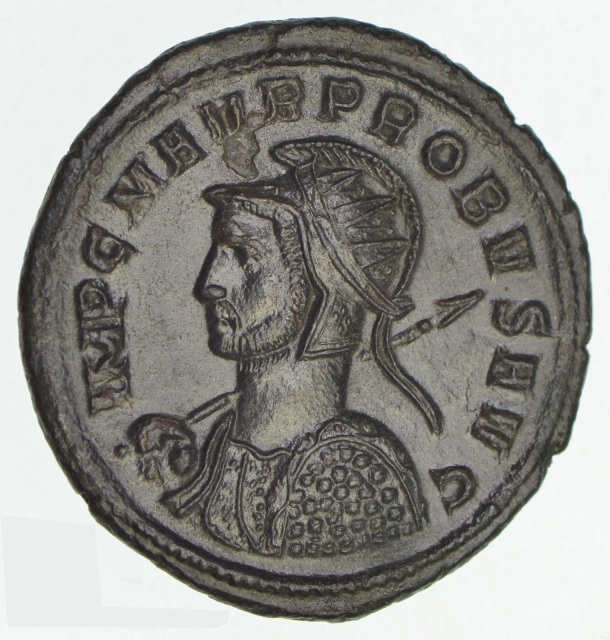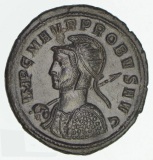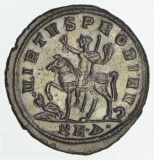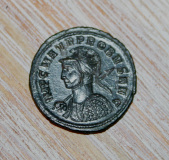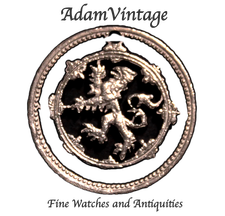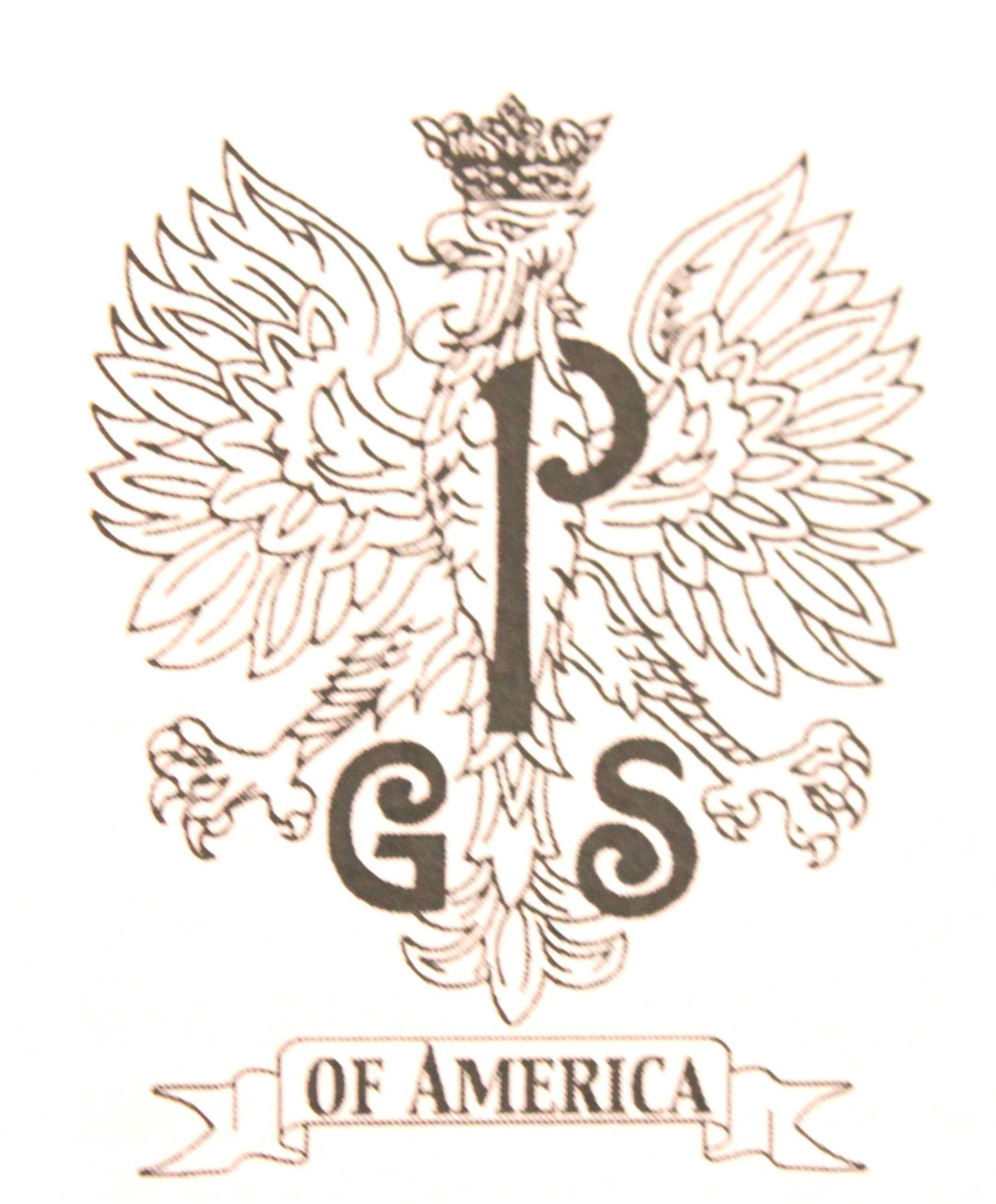Ancient Roman Probus 276-282 AD. Antoninianus obverse in armour & spear; reverse on horseback
Excellent example of a choice grade antoninianus during the reign of Emperor Probus. This bronze coin is well struck and well centered; an important aspects of ancient coinage.
About Probus | Source: Wikipedia
Probus was born between 230 and 235 (exact date of birth unknown) in Sirmium (modern day Sremska Mitrovica), Pannonia Inferior, the son of Dalmatius. According to the Alexandrian Chronicle, he was born sometime in the year 232.
Probus entered the army around 250 upon reaching adulthood. He rose rapidly through the ranks, repeatedly earning high military decorations. Appointed as a military tribune by the emperor Valerian, at a very young age, in recognition of his latent ability,[citation needed] he justified the choice by a distinguished victory over the Sarmatians on the Illyrian frontier. During the chaotic years of the reign of Valerian, Illyria was the only province, generaled by such officers as Claudius, Aurelian and Probus, where the barbarians were kept at bay, while Gaul was overrun by the Franks, Rhaetia by the Alemans, Thrace and the Mediterranean by the Goths, and the east by Shapur I. Probus became amongst the highest placed lieutenants of Aurelian, reconquering Egypt from Zenobia in 273 A.D. Emperor Tacitus, upon his accession in 275, appointed Probus supreme chief of the east, granting him extraordinary powers in order to secure a dangerous frontier. Though the details are not specified, he is said to have fought with success on almost every frontier of the empire, before his election as emperor by the troops upon Tacitus' death of old age in 276, in his camp in Asia Minor.
According to the favorable treatment of Gibbon (whose account is largely derived from the Augustan History), Probus was the last of the benevolent constitutional emperors of Rome.While his successor Carus (Imp. 281-284) simply disdained to seek the senate's confirmation of his title, the latter's successor Diocletian (Imp. 284-305) took active measures to undermine its authority, and established the autocratic nature and divine derivation of the Imperial power. Never again, after Diocletian's reforms, would the Roman senate play an active role in the management of the empire. On the military sphere, Probus' victories continued the succession of martial Illyrian emperors begun by Claudius Gothicus, which restored the military supremacy of Rome after defeats sustained during the crisis of the third century.
